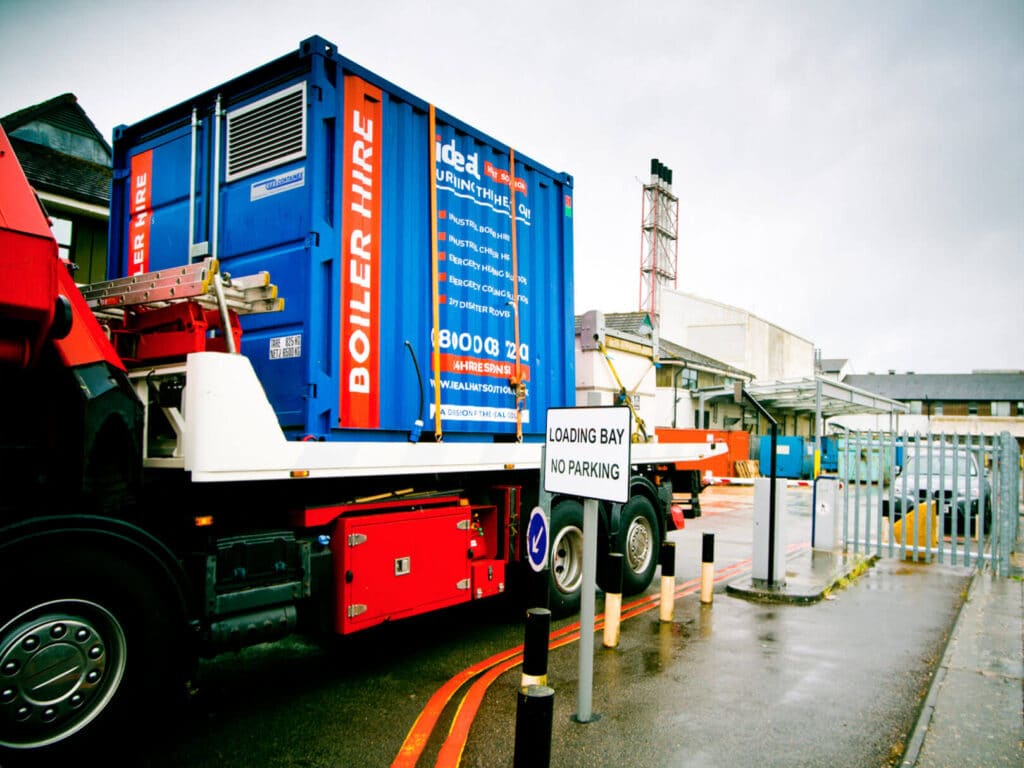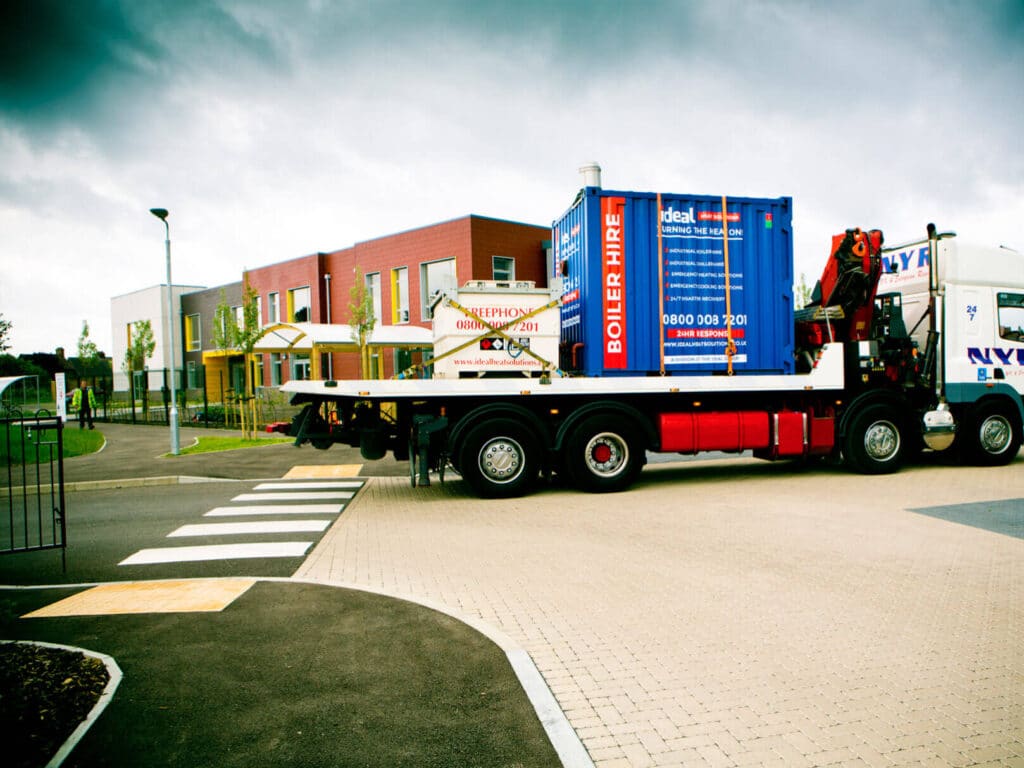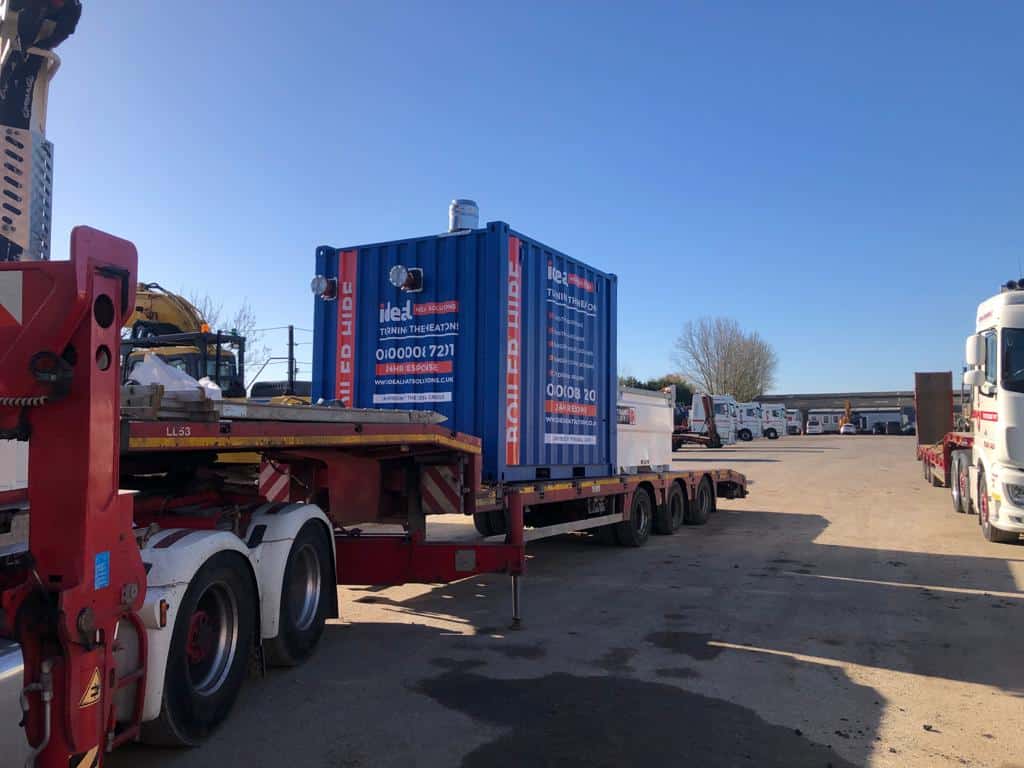We all have a right to breathe clean air. As temporary boiler specialists, Ideal Heat Solutions fully understand the importance of complying with regulations to ensure that members of the public can be confident their health and wellbeing is being protected.
Regardless of whether temporary boilers are in situ for two months or more than a year, every temporary boiler must be fully compliant with the rules.

For example, temporary boilers must comply with the Clean Air Act. This act was a milestone in environmental protection when it was first published in 1956. Until this day the Clean Air Act helps to reduce air pollution and ensure public safety. Calculating the position of a temporary boiler is critical to determine the correct flue height and proximity to windows of the temporary boiler. Temporary boilers cannot be landed too close to a building as this can pose risks to the public. If a temporary boiler has to be brought nearer because of the site’s conditions, a temporary flue should be installed to protect people.

“Ideal Heat Solutions take this approach in order to keep people safe,” explains Steve Warne, National Sales Manager at Ideal Heat Solutions. “Furthermore, and through 24-hour IQ monitoring technology, all of our equipment has inbuilt safety features. Engineers receive notifications and signals which help us take the right action if need be. As the temporary boilers govern themselves, in a real emergency they can completely shut down to protect the public.”
PERFORMANCE IS KEY
“Pressure jet boilers are boilers in which flue gases are transported and directed at speed which creates a flue velocity which, figuratively speaking, throws the matter up in the air, explains Steve. “If you ever adjust a mixture on a burner, you can see how far it goes. With a well-designed flue system, the flue gases can be sent 10-15m into the air. You tend to find you avoid low-level problems when you have high temperature, high pressure boilers.”
To get the most efficiency out of a boiler, it needs to cool the flue gases below 55 degrees. Once they’re below 55 degrees water is produced (when you burn natural gas, you get water). However, with a high efficiency boiler, the flue gases must be kept at around 220 degrees. And in an ultra-high efficiency condensing boiler, they have to be cooled down so the water drops out. In this case, a lot of unwanted steam, water and condensation occurs, which can be problematic.

If you choose a condensing or high efficiency boiler that are low temperature and pressure, what happens is the flue gases are not buoyant. As they are heavy, plumes will appear, which is the steam that comes back out and filters down at lower level. When these systems go wrong, they can act like smoke machines. Using jet systems avoids this because it ‘throws’ the flue gases up a good distance.
“When dealing with that problem we tend to do put a flue dilution in, explains Steve. “If we ever need to discharge at low level, we utilise this dilution system. If you install a high temperature system and put a condensing boiler in, all it will do is act like a high efficiency boiler. So, our boilers are not condensing unless the system requires it.”
BOILER MAINTENANCE
If a boiler is not monitored regularly over time for efficiency, when deposits build up inside the appliance it may go unnoticed. The link between the amount of gas that the appliance is burning, and the monthly cost of that gas, can easily be missed especially if costs are increasing incrementally at the same time.

Steve said: “We are seeing an increase in the failure of metal pipework systems all because they haven’t been maintained properly. Poor water quality is a hidden killer of systems. Preventative maintenance plans that include the regular monitoring of water quality could extend the life of a system because it can detect issues early before they become truly problematic. When metal pipework systems begin to fail, plantroom equipment becomes less efficient and requires more fuel to run, which in turn increases costs. As the famous saying goes, ‘Prevention is better than cure!’”
Steve always recommends monitoring as a first cause of action. “People should have heat meters on their appliances to monitor the efficiency of their plant, explains Steve. “They should also have a planned maintenance schedule and a planned replacement schedule in place. There should also be a plan just in case plant fails completely; it should identify where temporary plant can be safely sited. This will reduce the time it takes to put in temporary measures and avoid delays getting sites up and running again.”
Ideal Heat Solutions regularly clean maintain its temporary boilers to ensure that when they are needed by its customers that they are working efficiently and not adding to any issues.

Steve said: “We monitor our temporary plant when it is in situ so we can quickly respond to any issues that arise. We have our own maintenance schedules, and we build resilience into them. You should be prepared for the worst-case scenario and have a strategy in place to avoid unnecessary closures and expensive downtime,” concludes Steve.
As featured in Modern Building Services, please view the digital archive here: https://browseandread.co.uk/MBS/november2022/24/